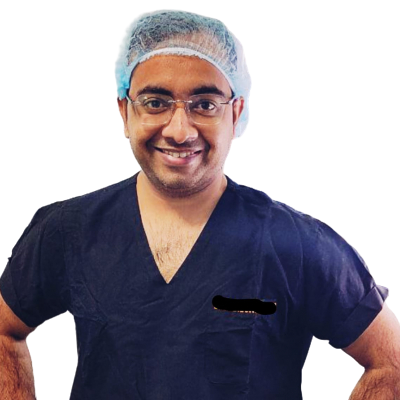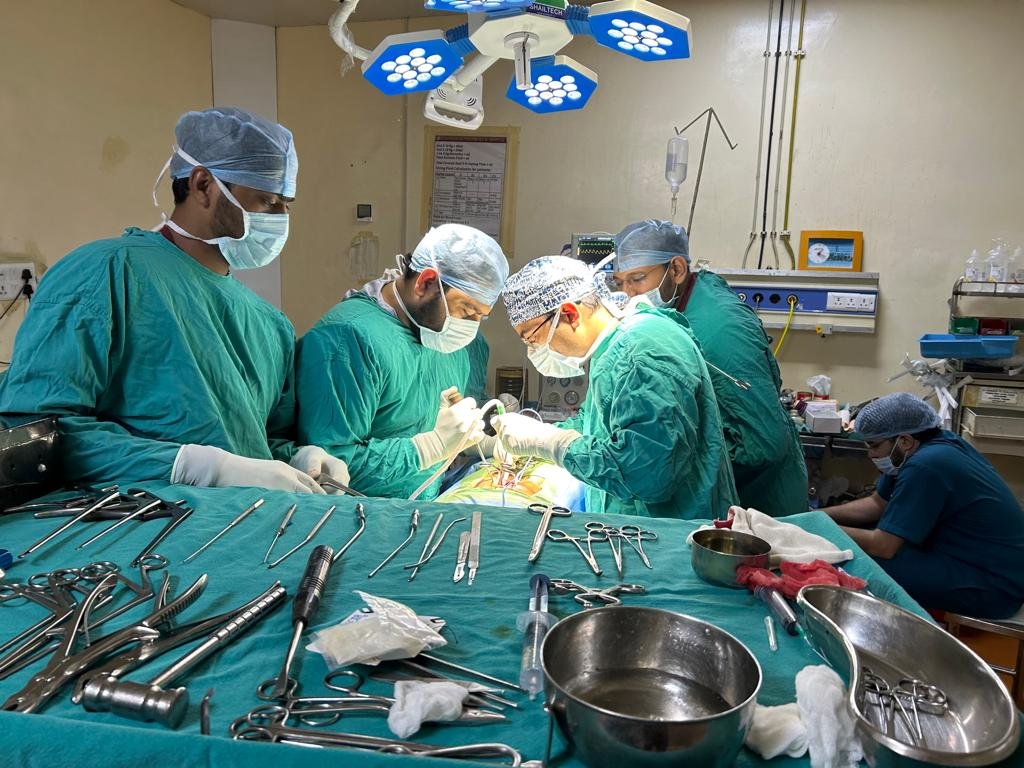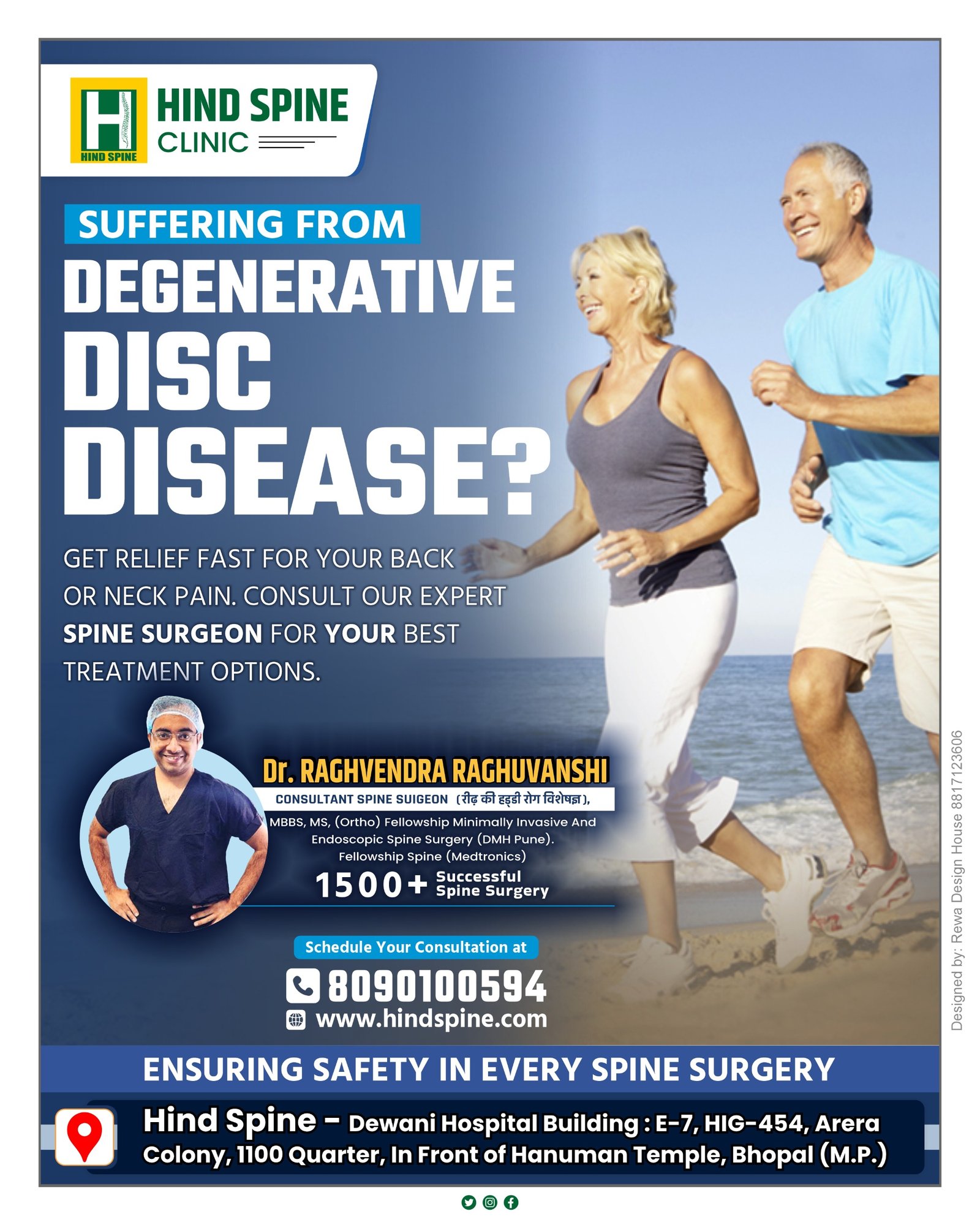Understanding Degenerative Disc Disease & Finding Relief at Hind Spine Clinic
Degenerative Disc Disease (DDD) refers to the gradual wear and tear of the intervertebral discs—the soft, shock-absorbing cushions between your spinal vertebrae. Although “disease” sounds alarming, DDD is often a natural consequence of aging, injury, or repetitive stress. When discs lose hydration and elasticity, they can crack, bulge, or collapse, leading to pain, stiffness, and reduced mobility.
How Spinal Discs Work
Structure: Each disc has a tough outer ring (annulus fibrosus) and a gel-like core (nucleus pulposus).
Function: Discs act as shock absorbers when you walk, run, lift, or twist. Healthy discs keep vertebrae aligned and protect spinal nerves.
Causes & Risk Factors
Age-Related Degeneration: Discs lose water content over time, shrinking and becoming less flexible.
Mechanical Stress: Heavy lifting, poor posture, or repetitive bending can weaken discs.
Injury & Trauma: A fall, car accident, or sports injury can damage disc integrity.
Genetics: Family history of DDD increases your likelihood.
Lifestyle Factors: Smoking, obesity, and sedentary habits accelerate disc wear.
Common Symptoms
Chronic Back or Neck Pain: Aching discomfort that worsens with activity or prolonged sitting.
Radiating Pain: Sharp, shooting sensations into the arms, hands, buttocks, or legs.
Numbness & Tingling: “Pins and needles” from nerve compression.
Stiffness & Limited Flexibility: Difficulty bending, twisting, or standing upright.
Early diagnosis and intervention often yield better outcomes. If you experience persistent spinal pain, consult an expert without delay.
Diagnostic Approach
Clinical Evaluation: Detailed medical history, physical exam, and symptom review.
Imaging Studies:
X-rays reveal disc space narrowing and bone changes.
MRI provides high-resolution views of disc hydration, bulges, and nerve involvement.
Nerve Conduction Tests: EMG studies detect nerve irritation or compression.
Treatment Options at Hind Spine Clinic
Conservative Care
Physiotherapy: Core strengthening, posture correction, traction, and manual therapy.
Medications: Anti-inflammatories, muscle relaxants, and pain modulators.
Lifestyle Modifications: Weight management, ergonomic adjustments, and smoking cessation.
Minimally Invasive Spine Surgery
Endoscopic Discectomy: Tiny incisions and a micro-camera remove herniated tissue.
Percutaneous Techniques: Needle-based procedures to decompress nerves without open surgery.
Benefits: Less blood loss, minimal scarring, shorter hospital stays, and faster recovery.
Expert Surgeon
Dr. Raghvendra Raghuvanshi, MBBS, MS (Ortho)
Fellowships in Minimally Invasive & Endoscopic Spine Surgery (DMH Pune) and Spinal Implants (Medtronic)
1,500+ successful spine surgeries ensuring safety and precision.
Why Choose Hind Spine Clinic?
Patient-Centered Care: Customized treatment plans based on your anatomy, lifestyle, and goals.
State-of-the-Art Technology: High-definition endoscopes, navigation systems, and advanced instrumentation.
Comprehensive Support: From pre-op counseling to post-op rehabilitation and long-term follow-up.
Comfort & Convenience: Modern facility located at Dewani Hospital Building, Arera Colony, Bhopal.
Take the First Step Toward Pain-Free Living
Don’t let degenerative disc disease control your life. Rediscover comfort, mobility, and confidence with expert spine care:











